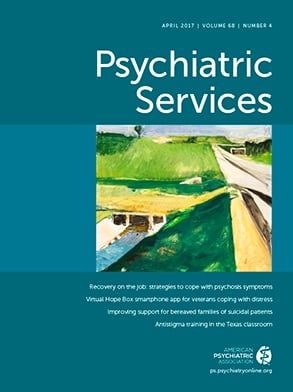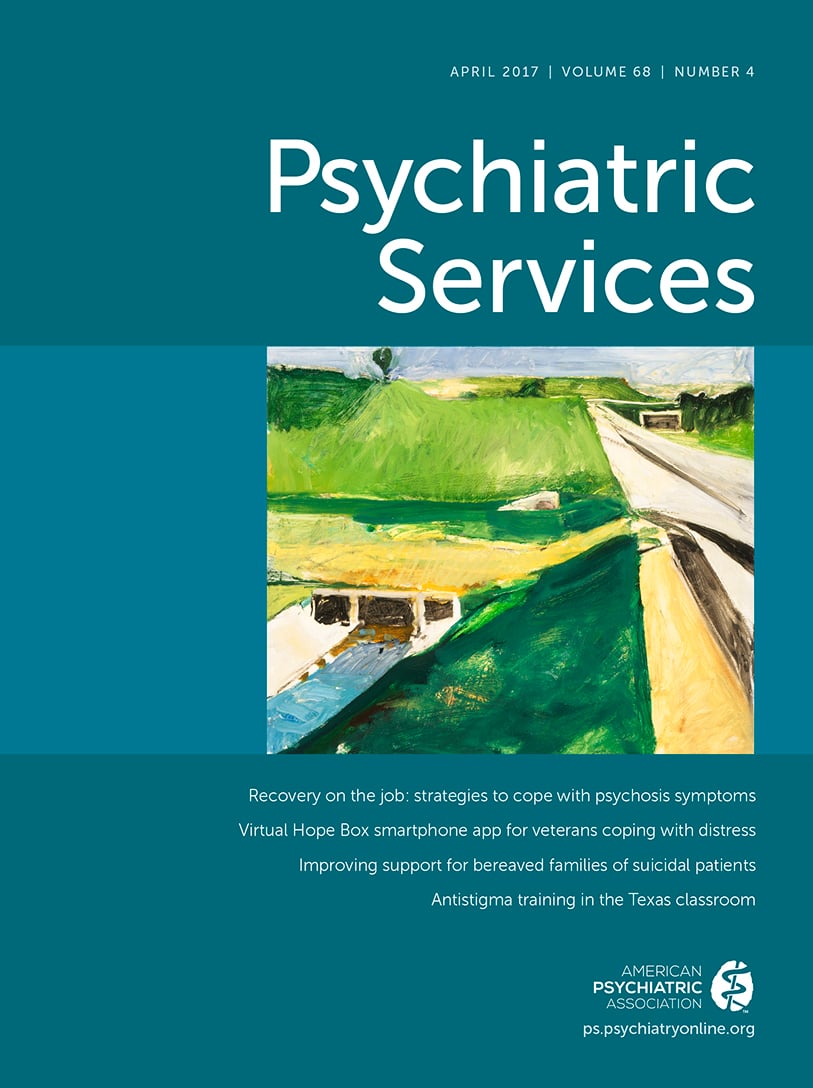TO THE EDITOR: In recent years, the issue of veteran suicide prevention has risen to that of a major public health challenge. Present estimates find that 20 veterans die by suicide each day (
1). In 2014, veterans accounted for 18% of adult suicide deaths, despite constituting only 8.5% of the general adult population (
1). After adjustment for age and gender, veterans are considered to be at 21% higher risk of suicide than American civilian adults (
1). Responding to this challenge requires adopting innovative supportive options for veterans struggling with suicidality.
The U.S. Department of Veterans Affairs (VA) oversees the largest integrated health care system in the nation. In an effort to further develop its suicide prevention efforts, a memorandum of understanding (MOU) was recently signed between the VA National Office of Suicide Prevention and the VA National Chaplain Center. This MOU formalized an enhanced collaborative relationship between VA clinical providers and VA chaplains aimed at preventing suicide in veteran populations. Both the VA and the military have sought in recent years to enhance the role of chaplains as part of veteran suicide prevention efforts, a strategy that was recently reaffirmed at the Veterans Suicide Prevention Call to Action Conference (February 2, 2016, Washington, D.C.).
We posit that this enhanced relationship will bode favorably in terms of providing an added measure of support and care to veterans at increased risk of suicide. Research finds that VA chaplains regularly deal with suicidality among their service users (
2). The MOU lays a foundation for enhancing the mental health competencies of VA chaplains. It also looks to increase sensitivity to the spiritual, pastoral, and existential care needs of veterans on the part of clinical health care providers. For example, problems with forgiveness and maladaptive religious coping strategies have been associated with suicide risk in some veteran groups (
3). Spiritual health and well-being is named as one component of a comprehensive suicide prevention strategy (
4).
We also posit implications for health services research. The MOU outlines a national and systemic framework for interdisciplinary collaboration, including enhanced communication between professional groups and coordination of care, education, and evidence-based best practice. As established service providers at VA health care facilities, chaplains support their service users through spiritual and pastoral care as well as psychosocial support (including counseling) (
5). Future research might consider examining the effects of such interdisciplinary collaboration, especially as related to any measurable changes in suicidal behavior and other health outcomes.
Chaplains offer professional support to at-risk veterans who might otherwise be reluctant to seek mental health care services because of fear of stigma. Where appropriate, chaplains also facilitate access to formal health care providers. Further, they ensure the timely provision of health care services by alerting facility-based clinicians about at-risk veterans so that suicide risk and any underlying health complaints can be clinically addressed. The MOU recently signed between the VA National Office of Suicide Prevention and the VA National Chaplain Center marks an important next step in veteran suicide prevention efforts.

